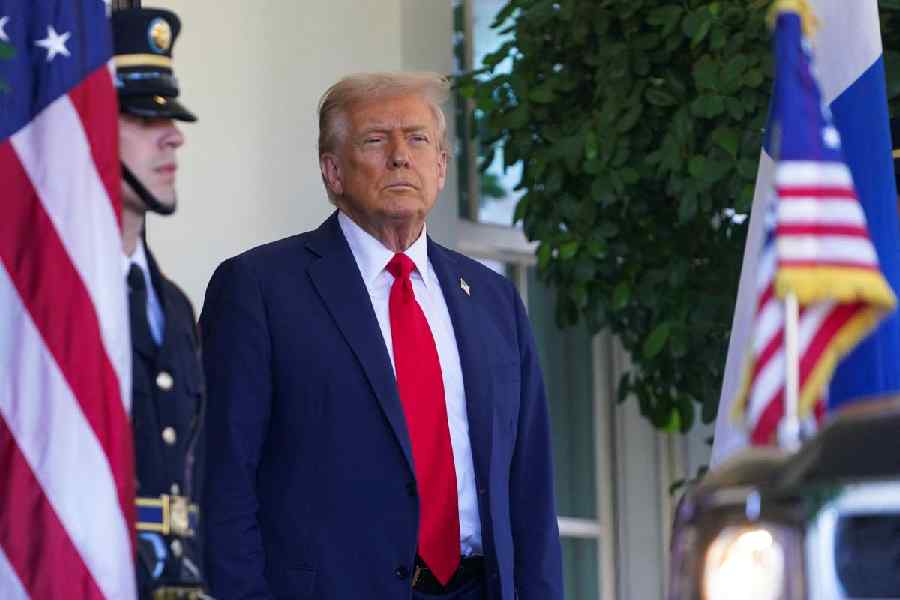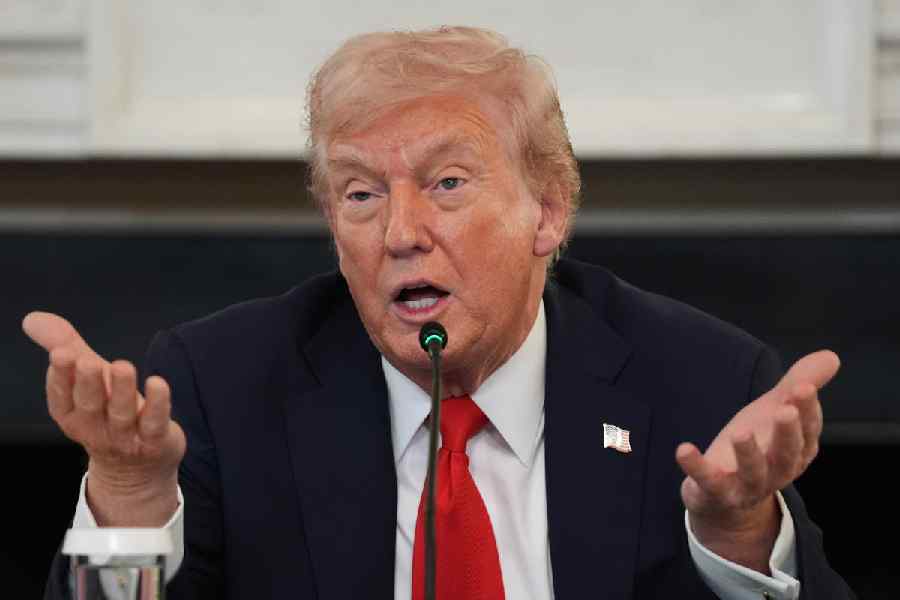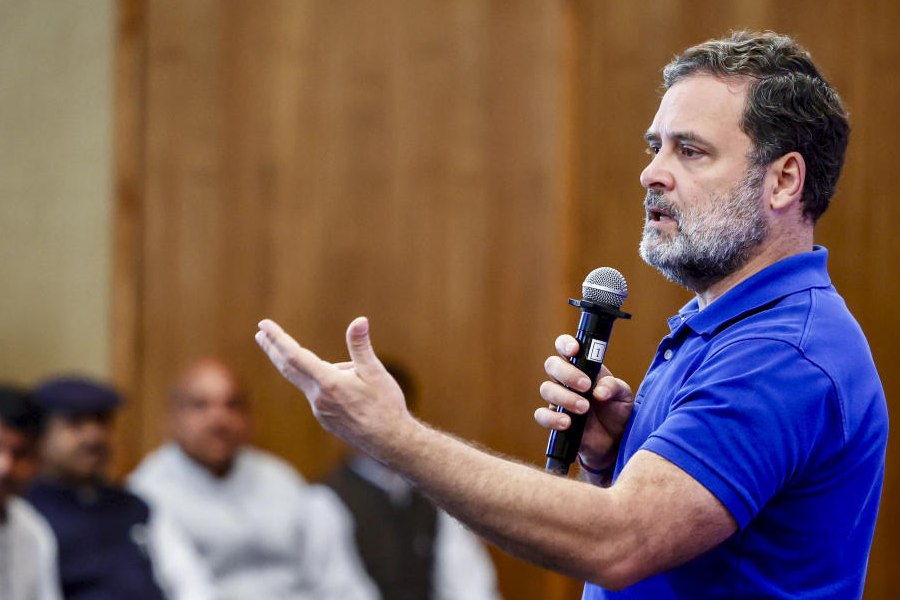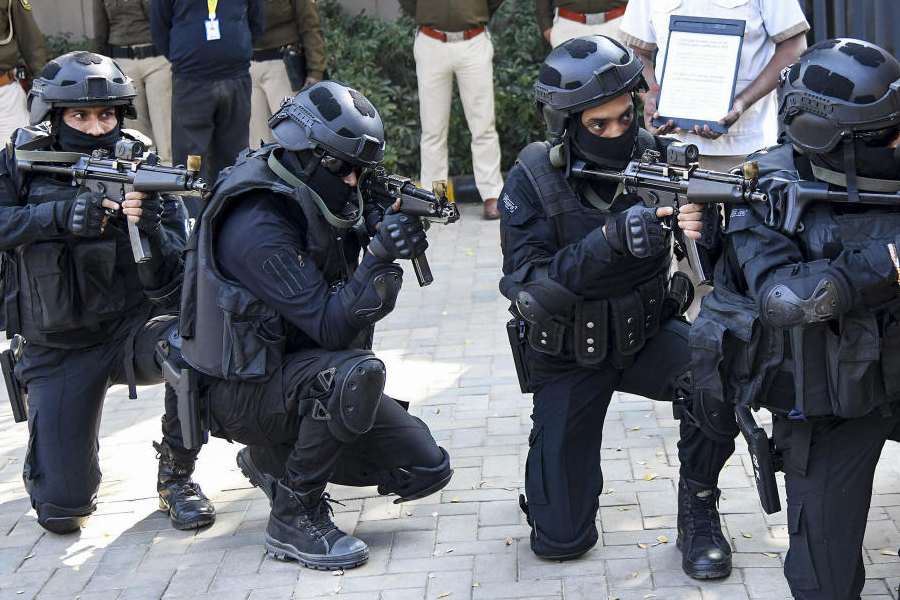Russia would back Donald Trump's candidature for the Nobel Peace Prize, state news agency TASS quoted Kremlin aide Yuri Ushakov as saying on Friday, as newspapers reported what The Wall Street Journal called an “11th hour push” for the US President to win the coveted award.
The winner of the 2025 prize will be announced at 14:30 IST (0900 GMT).
Russia has said repeatedly that it is grateful for Trump's efforts to end the war in Ukraine.
Israeli Prime Minister Benjamin Netanyahu stepped away from negotiating an end to the war in Gaza on Thursday to post on X an altered photo of himself hanging an outsize Nobel Peace Prize medal around the neck of President Trump.
“He deserves it!” Netanyahu wrote.
The feverish speculation about Trump and the Nobel Peace Prize also comes on the day the United States said it is sending about 200 troops to Israel to "oversee" the Gaza ceasefire deal between Israel and Hamas.
The WSJ reported that the families of some Israeli hostages held in Gaza have thrown their weight behind Trump, arguing in a recent letter to the Nobel committee that “in this past year, no leader or organization has contributed more to peace around the world than President Trump. While many have spoken eloquently about peace, he has achieved it. While others have offered empty promises, he has delivered tangible results that have saved countless lives.”
Experts widely agree that Trump is unlikely to be the committee’s choice, at least not this year.
"No, it will not be Trump this year," said Peter Wallensteen, a Swedish professor and expert on international affairs, told AFP.
"But perhaps next year? By then the dust will have settled around his various initiatives, including the Gaza crisis," he added.
Asle Sveen, a historian of the award, cited Trump's attempted rapprochement with Russian President Vladimir Putin, among other reasons.
"His admiration of dictators counts also against him," Sveen told Reuters. "This goes against Alfred Nobel's will."
The Telegraph Online threw its neck out on Thursday on why the Gaza war won’t help Trump achieve what he wants, despite him blowing his own trumpet, multiple times, over how he has been key in solving several global conflicts, including his claim of negotiating the India-Pakistan ceasefire understanding after the four-day conflict in May this year.
Experienced Nobel-watchers have said that a Trump win was extremely unlikely, citing what they see as his efforts to dismantle the post-World War Two international world order the Nobel committee cherishes.
Instead, they say the committee may wish to highlight Sudanese volunteer network the Emergency Response Rooms, a UN body such as the UN refugee agency UNHCR, the UN children's agency Unicef or the International Court of Justice, or an aid organisation such as the Red Cross or Doctors Without Borders.
It could also put the spotlight on journalists, following a year when more media workers than ever before were killed reporting the news, most of them in Gaza. If so, the committee could reward the Committee to Protect Journalists or Reporters Without Borders. And surprises are not unknown.
As the countdown ticks, here’s a look at previous US Presidents who were awarded the Nobel Peace Prize.
Barack Obama
The 44th US President (2009-2016) won the Nobel Peace Prize in 2009, with the committee citing Barack Obama's promotion of nuclear nonproliferation and a "new climate" in international relations fostered by him, especially in reaching out to the Muslim world
Obama’s win had stirred intense debate, as it came shortly after he took office. Critics argued that he had not achieved enough in office to merit the prize. Many still argue that Obama bombed seven countries after winning the Nobel Peace Prize.
President Trump has often spoken about the Nobel given to Obama.
“If I were named Obama, I would have had the Nobel Prize given to me in 10 seconds,” he said last year.
Jimmy Carter
The 39th President of the US (1977-1980) was awarded the Nobel Peace Prize in 2002 for his decades of work seeking peaceful solutions to international conflicts, advancing democracy and human rights, and promoting economic and social development.
Carter was involved in numerous humanitarian and peace initiatives, including his work with the Carter Center in areas like disease eradication, election monitoring, and conflict resolution.
Woodrow Wilson
The 28th US President (1913-1920) was awarded the Nobel Peace Prize in 1919 for his tireless efforts to promote peace and his vision for a post–World War I world order. Wilson's famous Fourteen Points outlined his vision for a new world order that would prevent future conflicts, and he played a significant role in the establishment of the League of Nations, a precursor to the United Nations.
Theodore Roosevelt
The 26th US President (1901-1908) was awarded the Nobel Peace Prize in 1906 for his role in mediating the Russo-Japanese War. This conflict had the potential to escalate into a major global war, but Roosevelt's diplomacy played a crucial role in ending the hostilities and brokering a peace agreement.
In addition to his mediation efforts, he reached a Gentleman’s Agreement on immigration with Japan, which aimed to reduce tensions and discrimination against Japanese immigrants. Roosevelt's prize, which he won on his first nomination, is currently hung in the Roosevelt Room in the White House’s West Wing.
Kissinger win, Nixon miss
In 1973, Richard Nixon was not awarded the Nobel Peace Prize, but his national security adviser, Henry Kissinger, received it jointly with North Vietnam's Lê Đức Thọ for negotiating a ceasefire in Vietnam.
President Nixon, who might have hoped to win it himself, said that the award gave “deserved recognition to the art of negotiation itself in the process of ending a war and laying the groundwork for peace.”
This decision became one of the most controversial in the history of the award.
Apart from these, US Vice-President Al Gore also won the Nobel Prize in 2007 for his efforts to obtain and spread knowledge about climate change.












